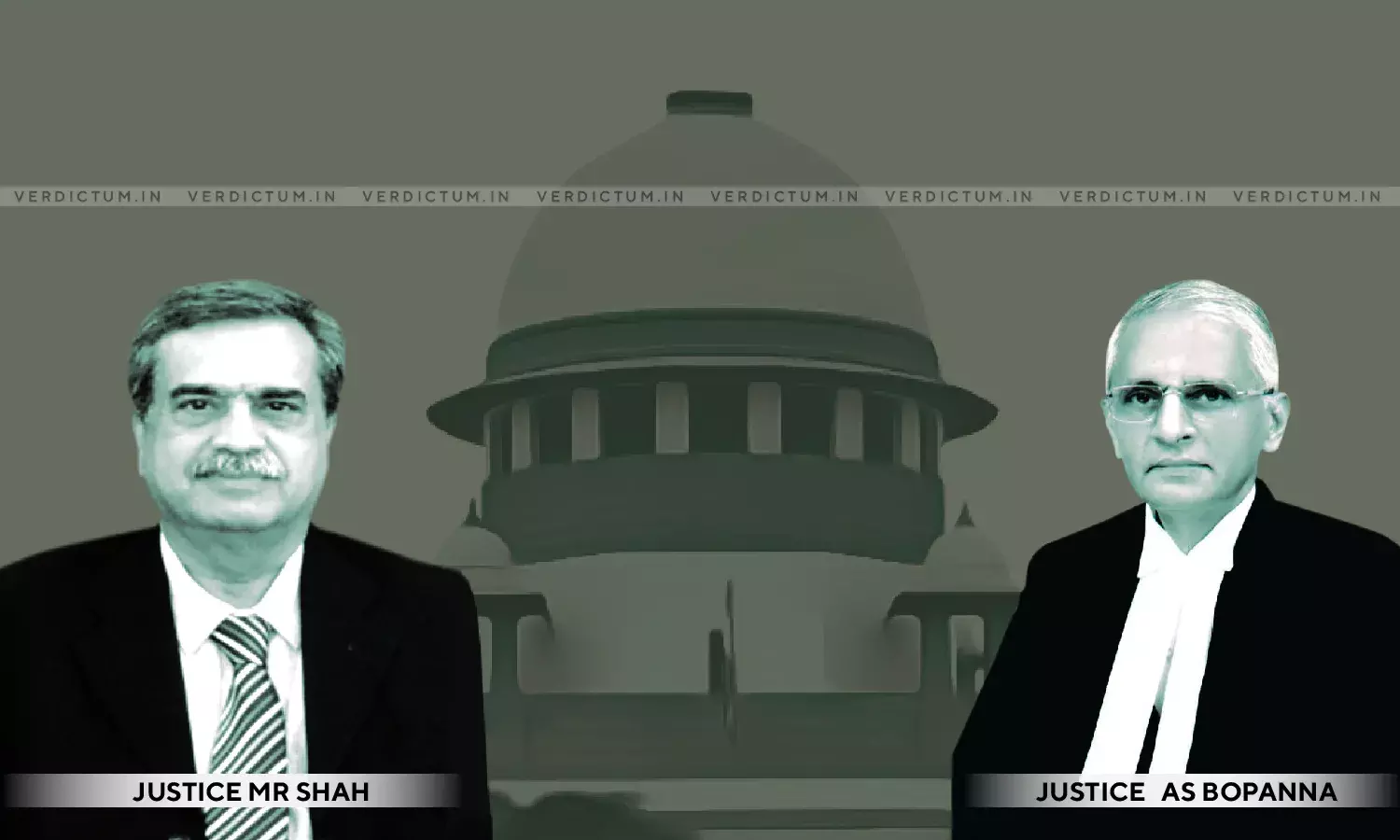Even In Case Of Subsequent Acquittal, Employee Who Once Made False Declaration Of Pending Case Not Entitled Appointment: Supreme Court
A Bench of the Supreme Court comprising of Justice M. R. Shah and Justice A. S. Bopanna has held that, "The employee once made a false declaration and/or suppressed the material fact of pending criminal case shall not be entitled to an appointment as a matter of right." The Court also pointed out that, "After giving false declaration, the employee can not get benefit of Section 12 of the Probation of Offenders Act."
Facts of the case
The Appellants- the employer terminated the services of the Respondent due to non-disclosure of the pending criminal case against him at the time he submitted the application for appointment and thereafter at the time of document verification, more than a year later. The Trial Court had convicted the Respondent for the offences under Sections 341 & 323 of IPC, vide Judgment passed prior to application for appointment and was granted the benefit under Section 3 of the Probation of Offenders Act, 1958. The Respondent, after about two years of the application, belatedly filed an appeal before the Sessions Court and obtained an order granting the benefit of Section 12 of the 1958 Act.
Considering the details suppressed by the Respondent, the Appellants terminated his service. However, the Single Judge and later the Division Bench of the High Court of Rajasthan, Jaipur Bench set aside the termination order. The High Court relied upon the decision in the case of Avtar Singh v. Union of India and held that the employee was held guilty in a dispute of trivial nature with his father, uncle, brother and cousin and such a dispute, even if disclosed, could have been ignored by the employer because of the benefit of Section 12 of the Act 1958. The Appellants preferred the appeal before the Supreme Court.
Regarding the argument about the benefit of Section 12 of the 1958 Act, the Bench noted:-
"It appears that only with a view to get out of the disqualification of conviction, belatedly he preferred an appeal and obtained the order of granting the benefit of Section 12 of the Act 1958. Even otherwise, it is required to be noted that on getting the benefit of Section 12 of the Act 1958 subsequently by that itself the respondent cannot get away of the allegations of suppression of material fact and filing a false declaration that neither any criminal case is pending against him nor he has been convicted by any court of law. Even in case of subsequent acquittal, the employee once made a false declaration and/or suppressed the material fact of a pending criminal case shall not be entitled to an appointment as a matter of right."
The Bench noted that it is a matter of TRUST:-
"The issue/question may be considered from another angle, from the employer's point of view. The question is not about whether an employee was involved in a dispute of trivial nature and whether he has been subsequently acquitted or not. The question is about the credibility and/or trustworthiness of such an employee who at the initial stage of the employment, i.e., while submitting the declaration/verification and/or applying for a post made false declaration and/or not disclosing and/or suppressing material fact of having involved in a criminal case. If the correct facts would have been disclosed, the employer might not have appointed him. Then the question is of TRUST."
The Bench further observed that the employer cannot be forced to continue employing such an employee:-
"Therefore, in such a situation, where the employer feels that an employee who at the initial stage itself has made a false statement and/or not disclosed the material facts and/or suppressed the material facts and therefore he cannot be continued in service because such an employee cannot be relied upon even in future, the employer cannot be forced to continue such an employee. The choice/option whether to continue or not to continue such an employee always must be given to the employer. At the cost of repetition, it is observed and as observed hereinabove in catena of decision such an employee cannot claim the appointment and/or continue to be in service as a matter of right."
Taking note of the Para 38.5 in the case of Avtar Singh, which was relied upon by the Single Bench as well as the Division Bench of the High Court, the Supreme Court observed that "that even in cases where a truthful disclosure about a concluded case was made, the employer would still have a right to consider antecedents of the candidate and could not be compelled to appoint such a candidate."
Accordingly, the Supreme Court set aside the Judgment of the High Court and restored the order of termination of the Respondent.
Parties: Rajasthan Rajya Vidyut Prasaran Nigam Limited and another Versus Anil Kanwariya




